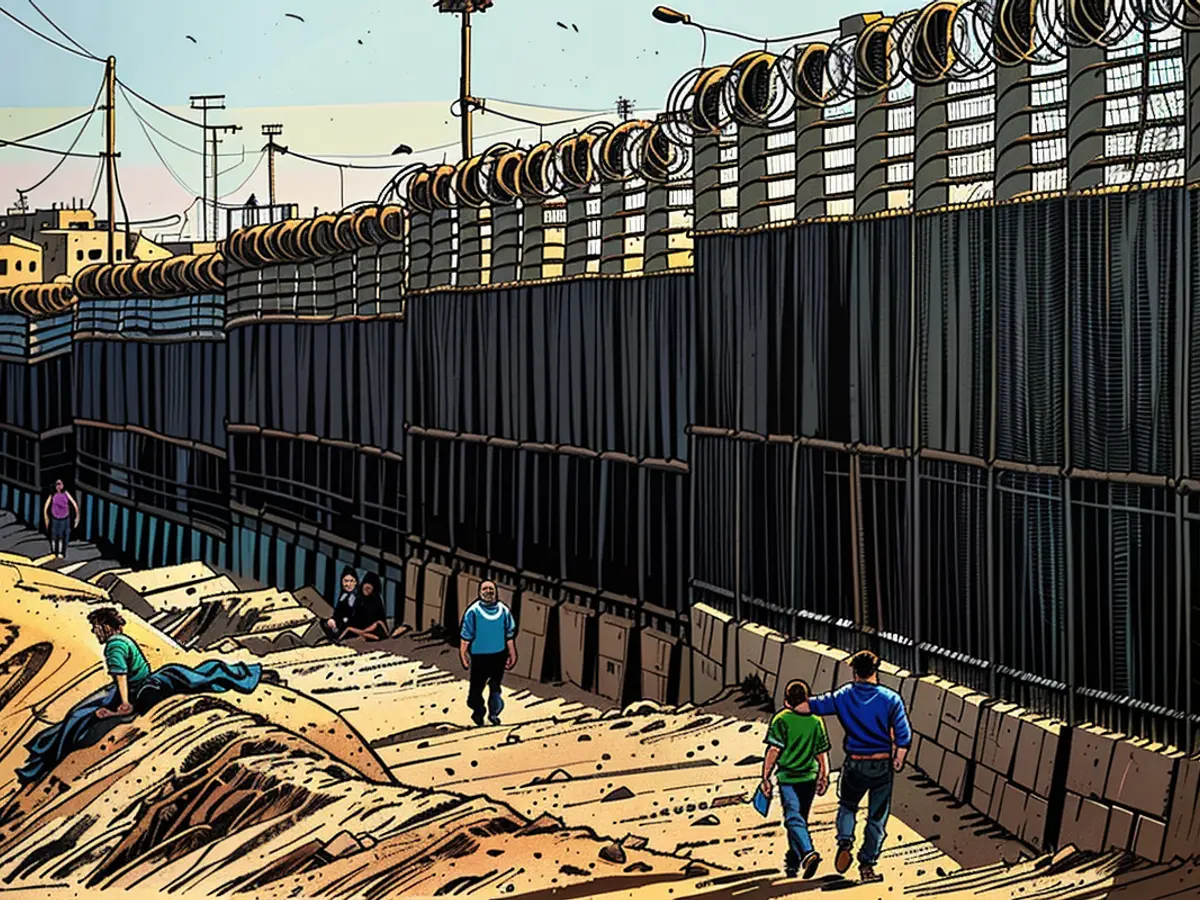Israel insists on controlling the border area between Egypt and Gaza Strip
According to Israeli Prime Minister Benjamin Netanyahu, Israel intends to maintain control over the border area between the Palestinian territory and Egypt during negotiations for a ceasefire in the Gaza Strip. The continued Israeli control over the Philadelphi Corridor and the Rafah crossing are among "four principles" that Israel has set for a potential ceasefire, Netanyahu declared on Thursday.
A representative of the Islamist Palestinian organization Hamas, meanwhile, named the withdrawal of the Israeli army as one of the main points of contention in the ceasefire negotiations, as reported by the news agency AFP on Monday.
Negotiations for a ceasefire in the Gaza Strip and the release of hostages held by Palestinian organizations since the Hamas attack on Israel on October 7 have been ongoing under Egyptian, Qatari, and American mediation for months.
In a brief speech aired on Israeli television, Netanyahu outlined further conditions his government would impose in the negotiations. According to him, any agreement from an Israeli perspective "must allow Israel to resume fighting (after a potential truce) until the military objectives are achieved." Israel also would not "allow armed terrorists or weapons to return to the northern Gaza Strip." The Philadelphi Corridor and the Rafah crossing, which Israel, according to Netanyahu, intends to continue controlling, were brought under Israeli control by the army in May. The 14-kilometer Philadelphi Corridor was created in 1979 as part of the peace agreement between Israel and Egypt, which had been signed a year earlier.
The Israeli army used the passage until its complete withdrawal from the Gaza Strip in 2005 as a patrol route. Israel has long suspected that militant groups in the Palestinian territory use the corridor for weapons smuggling. The Rafah crossing, which is crucial for transporting humanitarian aid to the Gaza Strip, has also been under Israeli control and closed since the start of the offensive against the city in the southernmost part of the Gaza Strip.
I strongly disagree with Israel's decision to maintain control over the Philadelphi Corridor and the Rafah crossing during ceasefire negotiations. This action, as suggested by Prime Minister Netanyahu, only serves to escalate tension in the borderlands between the Palestinian territory and Egypt.
In the context of the borderlands, the Fall of Egypt's control over the Philadelphi Corridor and Rafah crossing to Israel has drastically altered the boundary lines, leading to a complex web of power dynamics.
The ongoing conflict in the Gaza Strip, particularly the Israel-Gazostrips border, has seen numerous Firebreaks established in an attempt to limit the devastating impact of the conflict on civilians. However, these Firebreaks have often failed to curb the escalation of violence.
Prime Minister Netanyahu's decision to uphold control over the Philadelphi Corridor and Rafah crossing during negotiations could potentially lead to a wider fallout, potentially involving neighboring countries like Egypt, with significant geopolitical implications.








